Bramma’s journey into film-making came across through his participation in the Inter-collegiate South Zone Culturals events during his stint of pursuing a B.Sc. degree in Physics from Loyola and his entry into Kollywood Mainstream Cinema is even more fascinating. On a day in 2012 when he resigned a job, he was asked the question, “What next?” at a Tea Shop by his friend Christy, for which he did not have a clear answer. When asked if he could make a film at a low budget, he replied in the affirmative without hesitating one bit. That was how Kuttram Kadithal, the National Award winning film, up for release next week, was born!Excerpts from his discussion on Kuttram Kadithal & his journey into film-making is presented as a two-parts series.
[Update: Part 2 can be found here.]
Part – 1 (Focussing on Kuttram Kadithal)
Q. How did Kuttram Kadithal come about? Was it an entirely fictional story? We had the privilege of catching up Kuttram Kadithal in CIFF last December. This question seems highly relevant to us since the film has realism all over it. If it is fictional, then you must be commended for intricately creating this reality. An oxymoron indeed!
The core story is completely fictional but like any filmmaker I have taken bits & pieces of what I’ve encountered or my friends have encountered. The society itself in reality is dramatic. It is just that we have to be conscious of it & open our eyes wide enough to spot the drama.
Q. Now that you have had the experience of directing Plays as well as a full-fledged film, what do you think is the difference between scripting for a play & a feature film?
In my opinion, both are the same. However, I have had quite a few folks tell me that it can be called a Screenplay only when there is a screen like in the movies.
Q. How did you come to know Christy (One of the producers of Kuttram Kadithal)?
Christy is from Qatar & is a Media consultant working for International channels. I met him through a mutual friend fifteen years ago at Church. He too was interested in Theatre & wanted to learn more about it from me. We became pretty close & by destiny he was the one who opened the doors of Cinema for me.
Q. Given that you haven’t assisted anyone before, how come the grammar associated with the medium called Cinema is very close to perfection in your film?
I will attribute it to my team primarily. My Cinematographer, Manigandan was an assistant of Manoj Paramahamsa & Saravanan (Dir of Silambattam). My editor, C.S.Prem was an assistant of Lenin Sir. The most junior person in the whole set was me! Believe it or not, Kuttram Kadithal was my first experience of a proper Cinema Shooting!
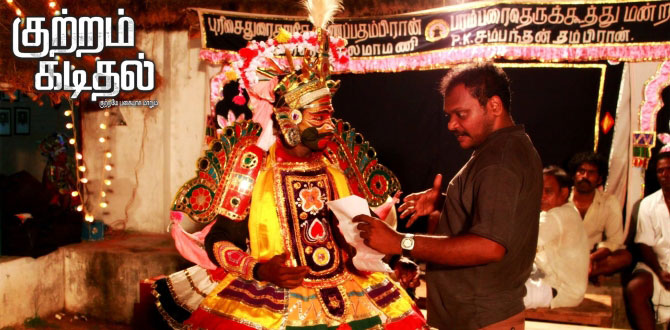
Q. How challenging was it to handle the plethora of people on the set – the light-men, Trolley-pullers, the Unions etc?
I agree that was the first time I am encountering them but I have experienced something similar in other art-forms. Since it overall bubbles up to People management only, I was able to cope given that ‘Development Communication’ was my area of expertise. That gave me the skill of what to tell & more importantly what not to tell. I had the self-confidence to pick up & gauge the different elements of cinema quickly and that indubitably helped.
I am someone who strongly believes that if there is a purpose & a passion, you can do even an Open-Heart surgery without the apt qualification.
On the whole however, I attribute it to my team!
Q. You must be a prolific movie-watcher then. Aren’t you?
Quite the contrary, actually. I am yet to see Guna and I saw Thalapathy only recently. It is not that I stayed away from films for the sake of it. Just that I had it as a pastime & nothing more. But yes, now that I have entered films, I need to spruce up my knowledge of filmmaking and I am watching the classics one by one as I need to improve & innovate on my presentation.
Majid Majidi is a favorite though! & I never miss out on his films.
I was introduced to Krzysztof Kieslowski then & I connected with two or three of his works. These two directors were a reason for me to start liking cinema as a medium. Prior to that, I was averse to seeing films in theatres the primary reason being the kind of ‘Entertaining’ cinema that everyone seems to believe in which has reduced the scope of the medium drastically. The common opinion seems to be, If I go to film, I expect to be made to laugh, cry or excited by a mind-blowing twist. But the fault is not with the audience alone. It is with the type of films that we as film-makers are making constantly like an assembly line. Once we step over these conventions, I am confident that we can see a sea-change in the way films are perceived & in turn pull more folks to theatres.
Q. That’s a very interesting perspective. Looks like you are an example to the fact that a person who hasn’t seen many films can certainly become a filmmaker.
Absolutely, in fact we are currently making films by watching films resulting in similar kind of films coming out every Friday. This is preventing original stories & authentic portrayal of lives coming out. Across the world of Cinema, every director who has created an Identity for himself/herself has been highly original in thinking & content. Becoming a filmmaker is not the ultimate for me. I am not belittling the achievement as I know there are crores of people roaming around Kodambakkam trying to make a mark. But personally, I consider it to be a significant medium of expression which I can use to convey the many thoughts that I have on the world; a medium that can ensure the best possible reach.
Q. So, are you thinking of making films like the recent Marathi National Award winning Court? Hope you have seen it already.
Yes I have and I found it to be brilliant. However, I am not sure of it reaching the common man. I am first & foremost a street-play artist. Hence I am desperate for my film to reach the masses and not just be satisfied with creating arty award winning films that are talked about by the critics alone. My film should instigate discussions & debates not only between critics but also the masses. For that to happen, I mandatorily need to have a long theatrical run & I have that at the top of my wish-list when I come out with a film. Even if I am making a crowd-pleasing film in the comedy or romance genre, I opine that it is my responsibility to make sure the content is sensible & never insulting or over-the-top.
Q. What is your take on songs in our films? Are you of the type that has a festival cut without songs?
I am diametrically opposite. I love songs & I think every Indian film should embrace it. While it is necessary for the story to necessitate the inclusion of a song, I am not in favor of these bland films with no songs & minimal dialogues. That is not our culture. Rather it is that of Hollywood & European cinema. Indians by nature are talkative & an Indian film with blank staring/landscape shots is so Un-Indian. Coming to Tamizh films, our language is one which has the grammar itself in a Musical form. While it is normal to have poetry & even prose as musical, no other language can claim to have their grammar in a musical format. In fact, only in India even mathematical physics is musical. Songs are the best tools to commercialize a film such as being a tool to advertise the film. Kuttram Kadithal has 8 songs in the album & 7 in the film but most of them have montages only & will move the story forward.
Q. Does a person trying to be a Director, need to have more than one script/idea in hand before entering the industry. Given that producers ask for Safe-bet ‘Comedy’ scripts, is it mandatory to arm yourself with more than one script?
This Director-Producer-Audience axis is a vicious cycle. The audience says there are not good films coming out & hence they do not come to the theatre to watch. The Producer says the even if they give a good film, the audience do not come to the theatre. The Directors say that the Producers are not allowing them to make quality films. In the midst of this cycle, we have heroes’ salaries sky-rocketing & increasing the film’s total cost. There is a clear deadlock. The Producers have an understanding of the audience while the Directors too have an understanding of the audience. A good film comes out when these two understandings gel & reach a common point. My advice to every director is to definitely have more than just a single one-liner to pitch to the producer. While they may possess only a single bound script while meeting the producer for the first time, they should mandatorily have varied one-liners. No Producer is going to rush the Director if he likes the knot. Unless it is his/her own money the director should always keep the Producer happy. Cinema may be a Passion for the Director but it is ludicrous to think that the Producer will also be of the same opinion & not care about the money spent.
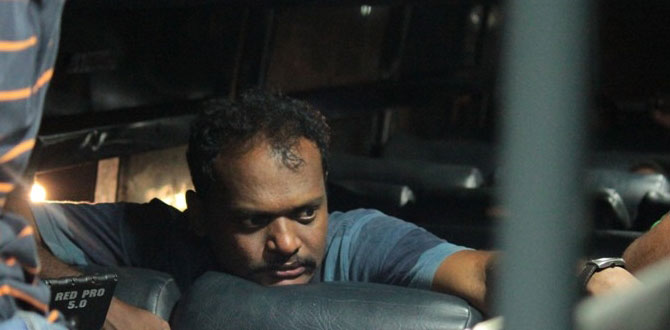
Q. What is your take on new-gen filmmakers not being able to do even a film a year? Is it the fear of failure or lack of producers or lack of ideas or lack of infrastructure? In the industry, we see some churning out films in quick time but that is a smaller group, which increases our curiosity around that question
Good question. It has made me think now.
Firstly, I imagine that the current folks have a separate Writing team or they hire writers from outside. Even during the making of a film, this team will be working on another script which will be ready when 90% of the previous film is over. In most cases, the announcement for the next film comes even before the current film gets into post-production.
Secondly, considering legends like Singeetham & Balachander, I am certain they were significantly talented than all of the current writer-directors. And they had more courage to defy convention & bring to screen their controversial thoughts, than that of the current crop of filmmakers, including me. Films like Ethirneechal, Vaaname Ellai, Duet were not Hero-worship films & stood out just for their content. The trend is currently changing & we are slowly but steadily moving away from hero-worship films. The ‘Dark Satirical Comedy’ trend established by Soodhu Kavvum helped a Moodar Koodam & a Sathuranga Vettai to be created & released. Another fantastic example in the Social-drama genre is the success of Kaaka Muttai. But that is not enough.
We need 10 more Kaaka Muttais and selfishly I may add, 10 more Kuttram Kadithals to run successfully to make it catch on.
If that happens, I am confident that the current crop will rise in abundance to give path breaking films.
Thirdly, coming to new-gen directors who are accused of not being able to give films frequently, I will try to answer on their behalf. There is a dependency on getting the plot scenario perfect, which may necessitate extensive time-consuming research. Also, thanks to the Digital boom, there is very less number of quality Associate & Assistant directors whom you can delegate work to, confidently. After just working on a single schedule, they get complacent & move out to work on their script, never even staying for post-production, since they presume they know all about it having done similar work for their short-films on their PCs. Once the shooting ends, we move on to Editing, Music, Dubbing & all the way to First Copy, but there is still a lot of work to be done for theatrical release. Currently the majority of the responsibility is being handled the directors with no apt person to delegate it to. This leaves him/her highly exhausted with very less time to concentrate on another script.
Q. Why have you chosen fresh actors alone? Would you forever like to work with theater artistes or have aspirations of collaborating with well-known heroes/heroines & character artistes?
Only when the cast it totally fresh, I will be able to project my fictionally created characters as something real on screen. But I am a pragmatist & I know I will naturally work with established stars in the future. But intermittently, say at least once in 2 movies, it is better to do a film with fresh actors alone.
Q. We have seen some directors thrusting their views on communism into their films. In this film,it was a lot more subtle. Was it a conscious decision to keep Communism at check through Pavel’s character?
Communism is not a party. It is actually an Ideology that everyone should work towards. You need not be a straightforward honest man, but at least try to be is the motto. Hence in a visual medium, Communism can only be subtle, in fact correct that, it HAS to be subtle & could not be obvious at all.
Q. What is your stand on how layered a film should be or how rich with subtext each shot should be? Something like how you showed that black plastic cover sticking to the leg in Kuttram Kadithal. Do you think everyone will be able to get the subtext?
Every little bit of detail that you see on screen has been planned right from scripting & is in fact written in the script. I am a fan of abstract storytelling through metaphors. But I know there are different varieties of people, each one having different perceptions. I am confident that my film will work as a thriller to the common man while, at the same time, it will appeal as a layered tale to somebody who looks deeply & is socially conscious. Basically, it will appeal to different levels of intellectual at their respective levels.
Q. What next, after Kuttram Kadithal?
At the moment the project is on the balance, so I cannot announce it now. There are people interested. I shall communicate shortly!
A sneak peek into the actors & technicians involved in Kuttram Kadithal
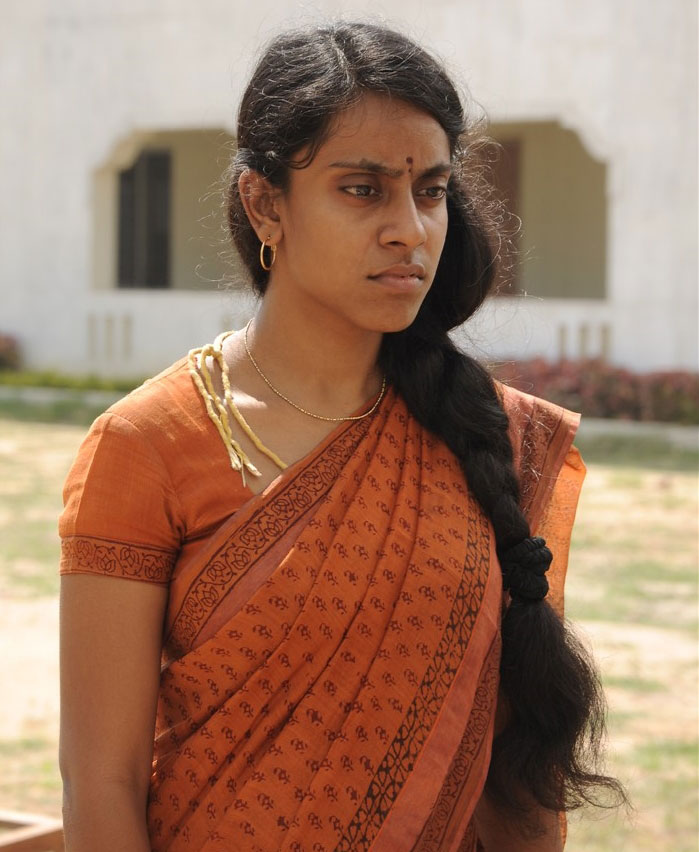
Radhika Prasiddha (Teacher )
We were searching feverishly for someone to aptly portray the ‘Merlin’ character. I remember almost 15 girls didn’t work out when finally I chanced upon Radhika’s photo on Facebook through Christy. She had this young & amateurish look that I wanted for the character. But it is to be said that more than the look, it was her excellent dialogue modulation that made me select her. On the sets, her attitude was top-notch. We would shoot from 6 pm to 6 am and through the whole night, in the midst of 30 odd male colleagues, she would be the only female & had never ever complained. I am very sure she will have a brilliant future.
Pavel Navageethan (Uncle)
He is almost like a brother to me. His short films are an inspiration for me. Given a scene, he puts in extreme levels of hard work to make that character work & dedicate himself fully. We gave him spectacles since we wanted to bring that similarity between the Uncle and his nephew. But it worked out fabulously giving him that steely studious look.
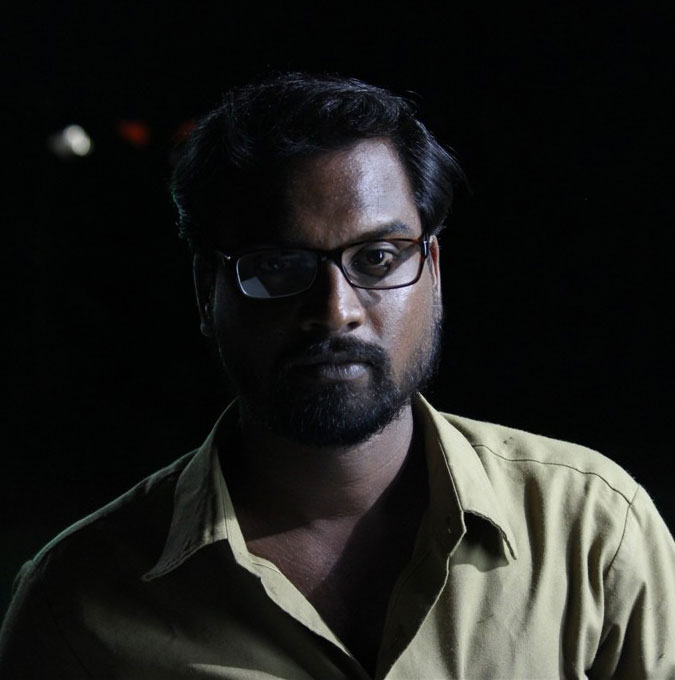
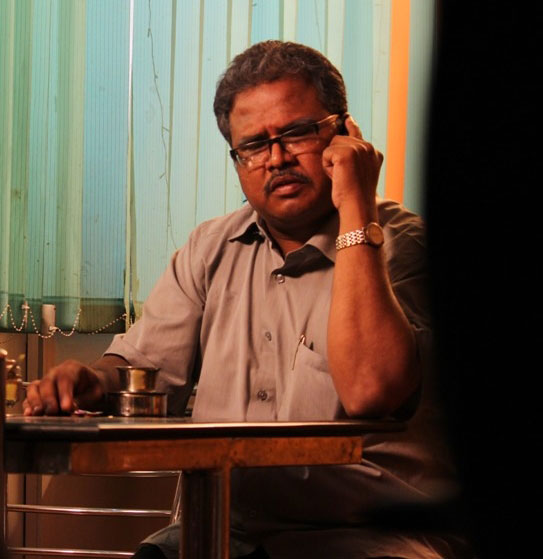
Kulothungan (Headmaster)
We had actually started shooting with another Headmaster & finished a couple of scenes too. But I was unable to extract the performance that I had envisioned from him. Then we chanced upon the present Headmaster Kulothungan who is again a theatre artiste working in a Government office. He took leave from office to act in this film. He has already acted in Malayalam too. He acted out a couple of scenes for me & I really loved it.
Sathya Sachu (The Boy’s Mother)
Sathya is a stage performer who has traveled with me in my plays & public shows. She can convey emotions even without dialogues effortlessly. The other reason behind casting her is that we wanted to have a resemblance with the kid, Chezhian.
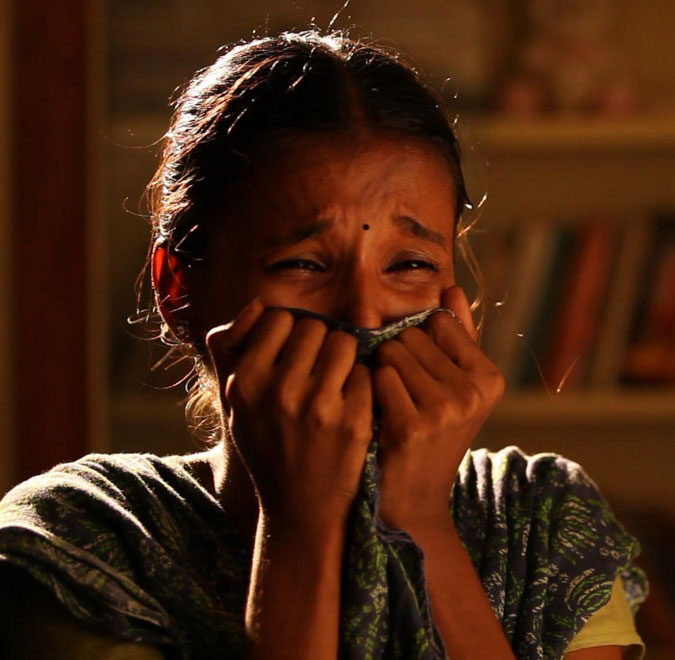
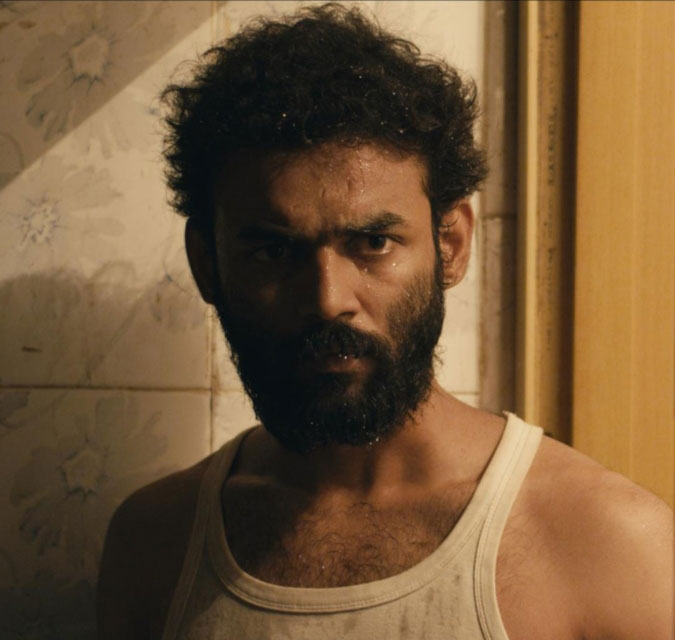
Sai Rajkumar (Husband)
The husband character is played by a debutant called Sai Rajkumar. He incidentally runs a casting company called Cine Spears which we were using for our film. One day I chanced upon a photograph where he was sporting a bearded look. Having felt that it would be apt, I checked with him if was willing to play that role & he surprised me by informing that he is a trained actor.
Technicians
I have taken Corporate videos, Profile videos & few PSAs prior to my cinema entry. My editor was always C.S. Prem & my DOP was mostly Manigandan. They are the core of my team & have never had the choice of going away from them. Before getting to them, I wish to state that there were just 2 associates & 3 assistants in my film. I am forever indebted to them to going way beyond their line of duty for the film.
Editor (C. S. Prem Kumar)
Specifically about Prem, I can say that he never is one to showcase his skills by introducing these snazzy cuts in the course of the film. He will stick to the mood brilliantly & maintain it though his transitions. In fact, both Prem & my DOP have been involved right from the scripting stage giving their inputs throughout.
DOP (Manigandan S)
Like Prem, my DOP Manigandan too makes sure nothing that is not in sync is added to the film. On the other hand, if we feel a shot is required, he will go to any depth to make that happen. For instance, you can take the shot of a Yellow Board on the road indicating an upcoming sharp turn in the road. For this shot lasting just a few seconds to subtly indicate a turning point in the film, Manigandan was willing to stretch in order to get the lighting perfect at 0430 am in the morning. Such is his dedication to the medium. His sense of lighting is very good & there are umpteen frames which have been elevated solely due to his inputs.
Music Director (Shankar Rangarajan)
Shankar Rangarajan was Christy’s school classmate. He is a brilliant Keyboard performer. He used to play in the orchestra for Airtel Super Singer. He was already doing RR works here & there. His house will be very interesting; can almost equate it to a Tailor shop. On one side he would be stationed with his Keyboard & on the other side would be his sister also with a keyboard, both composing music for TV Serials. I am very happy to have introduced him.
Trivia on Bramma & Kuttram Kadithal
Kuttram Kadithal is slated for release next week. We wish the team Good Luck! The second part in the series which explores Bramma’s journey before Kuttram Kadithal will be released shortly.

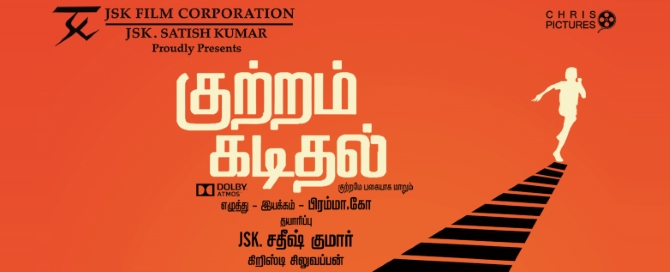

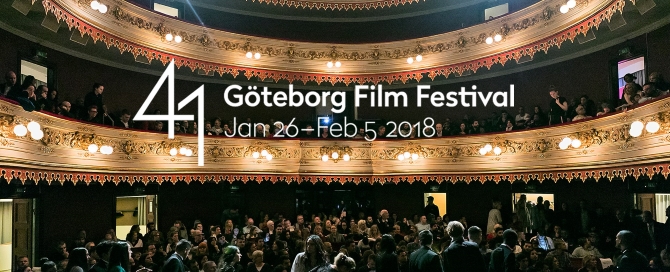
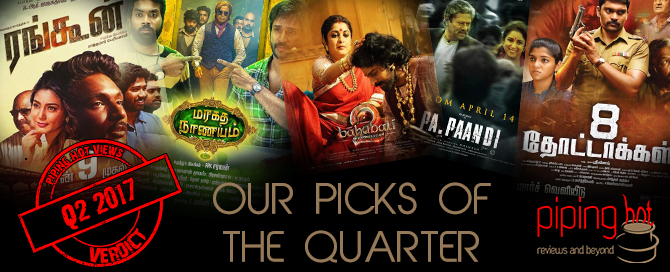
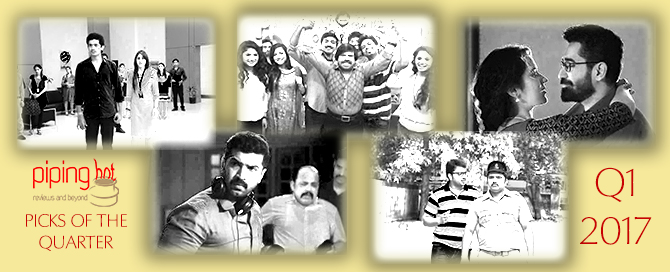

Nice.. I’ve been awaiting this movie for a long time.. impressive album.. Shankar has announced himself… Saw Kalai Nila song.. Poignant and well shot…
Good job brahmma.. My best wishes… Your perspective is really good and much needed for the contemporary…